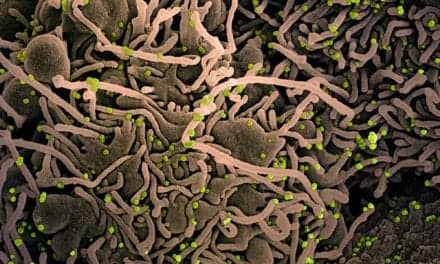Researchers have found that inhalation of gaseous hydrogen sulfide can reduce or even prevent lung injury in critical care situations that require mechanical ventilation. The study, published in the journal Anesthesiology, is the first to show such results.
While mechanical ventilators are indispensable life-saving tools for treating critically ill patients, they can also injure healthy lungs, or make already injured lungs worse by disrupting lung tissue, which can make patient care more difficult.
Hydrogen sulfide has long been regarded as a highly toxic gas, notorious for giving off an odor comparable to rotten eggs. In low doses, however, the gas has been shown to elicit a suspended animation-like state that offers protective effects to the body’s organs. The researchers treated mechanically ventilated mice with low concentrations of inhaled hydrogen sulfide.
“Recently, the dogma of hydrogen sulfide only being a toxic waste product has changed,” said Alexander Hoetzel, MD, study author from the University Hospital Freiburg in Germany. “It has been identified as being produced in the human body, mediating dilatation of vessels or limiting inflammatory responses. Together with other potentially toxic gases (nitric oxide and carbon monoxide), hydrogen sulfide has been classified as a ‘gasotransmitter,’ which are vitally important in the body’s metabolic functions.”
Inducing hypothermia has been recognized as a method to help protect the lungs in mechanically ventilated patients. Since hydrogen sulfide was found to induce hypothermia in the study, the researchers needed to know whether the protective properties of the gas came solely from its ability to lower body temperature.
“We found that even if hydrogen sulfide leads to reduced body temperature as one sign of suspended animation, our results clearly demonstrate that the application of the gas during mechanical ventilation reduces inflammation independently of its effects on body temperature,” said Hoetzel.
Hoetzel added, “We demonstrated that application of this gas can prevent organ injury. And clinical trials could resolve the question as to whether hydrogen sulfide might exert beneficial effects in patients who depend on ventilator support.”
Source: American Society of Anesthesiologists









